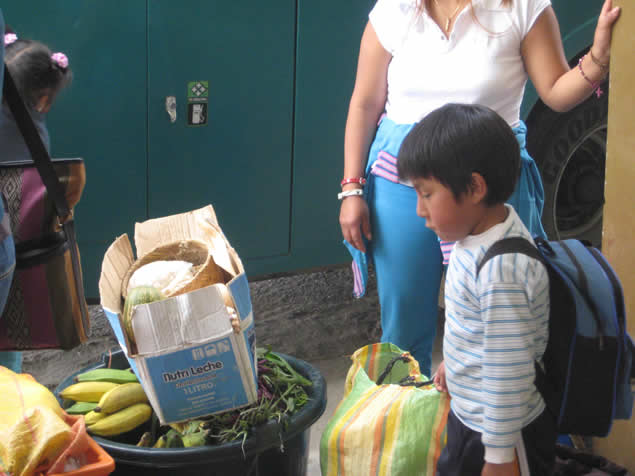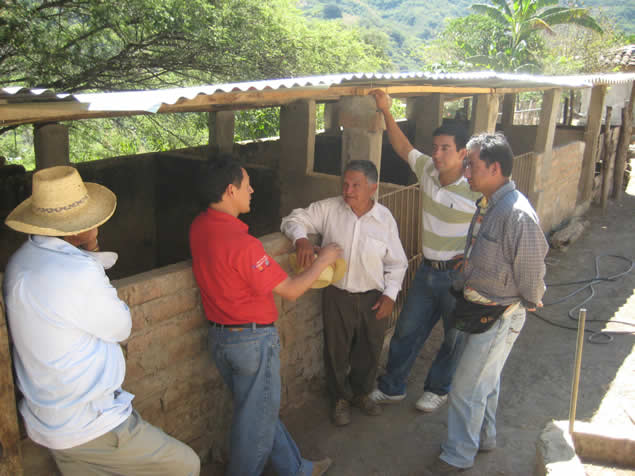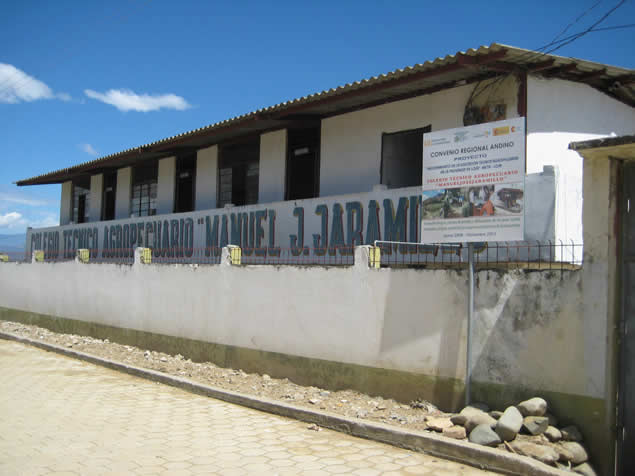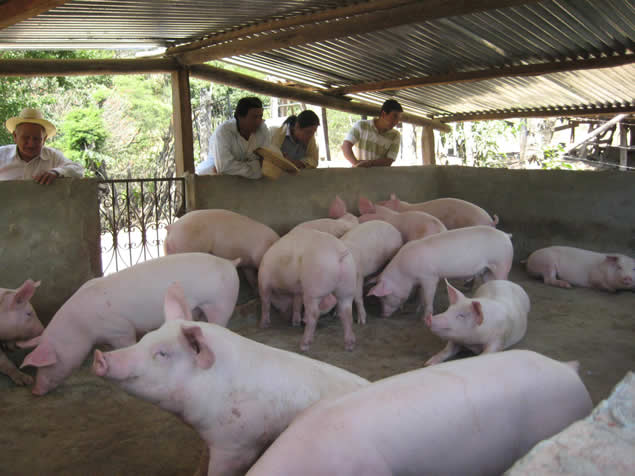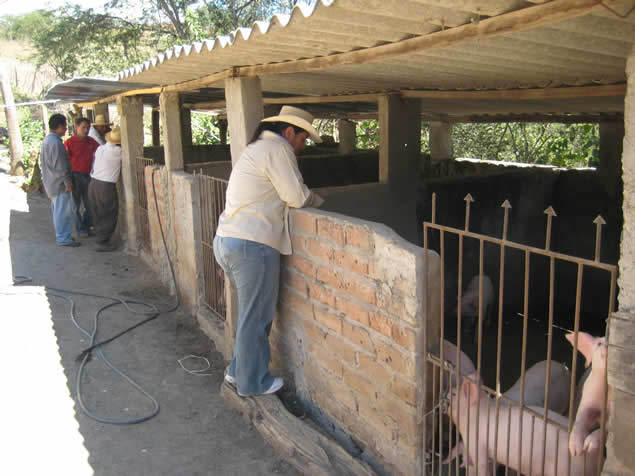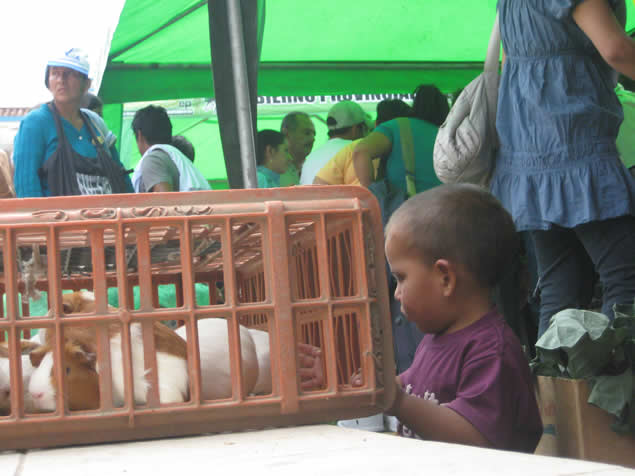Provinces of Loja, Zamora Chinchipe and El Oro, Ecuador
In collaboration with

December 2011 – June 2013
We contribute to achieving the sustainability of ecosystems and preserving water by promoting agroecology.
Objectives
- To accredit teachers and producers as agroecologists.
- To implement irrigation infrastructures and increase and diversify agroecological production.
- To achieve the sustainability of ecosystems.
Beneficiaries
3.260 direct
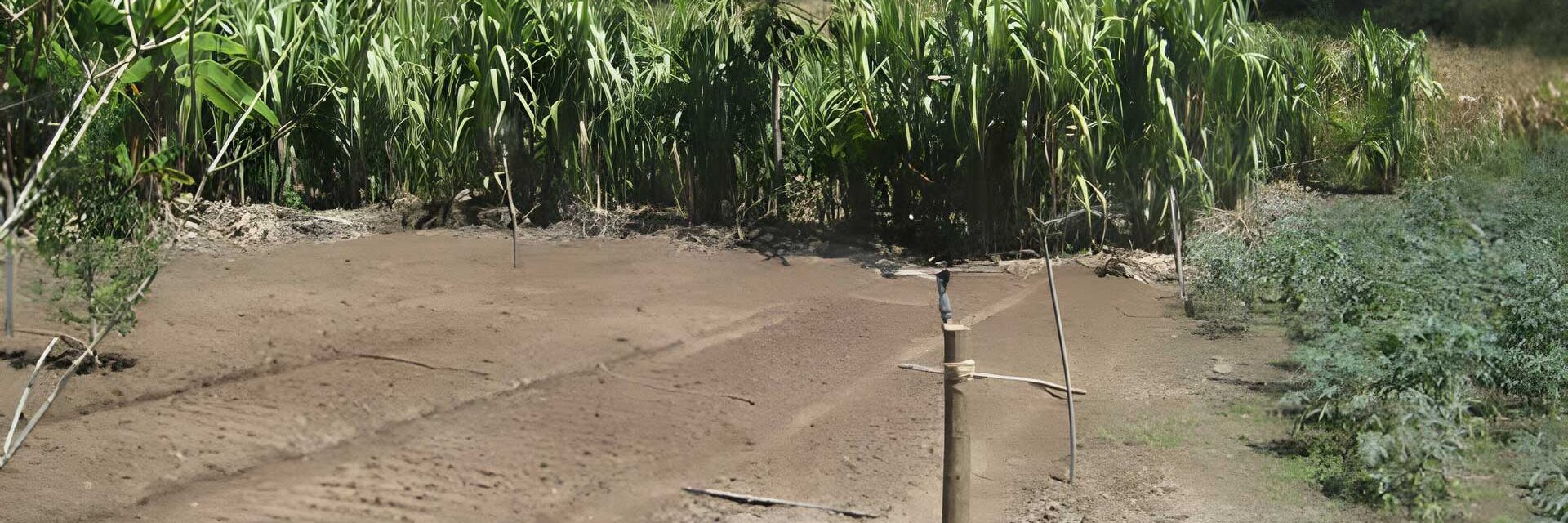
On the ground
There are difficulties in obtaining water in the dry season due to the lack of infrastructure for its storage and distribution in the arid forest region. Ther is erosion due to the absence of infrastructure to drain excess water in the humid forest region.
Ecuador has 3.2 million hectares of cultivable soil, of which just 26.20% (850,000 h) is used for irrigated agriculture.
This situation occurs for various reasons related to the use of natural resources:
- Poor technical administration of hydrographic basins.
- Deficient conservation of water and land resources.
- Rainforest deterioration.
- No biological diversity conservation.
Main Problems:
– Climatic Conditions
The production expectations of farmers in Zone 7 (the three provinces in the south of the country) are low due to the two problems identified:
- Difficulties in obtaining water in the dry season (from April to November) due to the lack of infrastructures for storing and distributing the water in the dry forest region of the provinces of Loja and El Oro.
- Absence of infrastructures for draining excess water in the tropical rainforest region, which makes it difficult to manage crops properly and exposes the soil to erosion in the province of Zamora.
– Sociological conditions
There is weak organisation for administering water, translated into:
- Use of polluted water for irrigation.
- Pollution of water transport systems by opencast quarries and discharges from mining operations.
- Water pollution through the inappropriate use of agrochemicals for aerial fumigation.
- The deficit in basic sewerage infrastructures at rural level causing direct pollution of water by liquid waste (no community treats waste water) and solid waste (refuse).
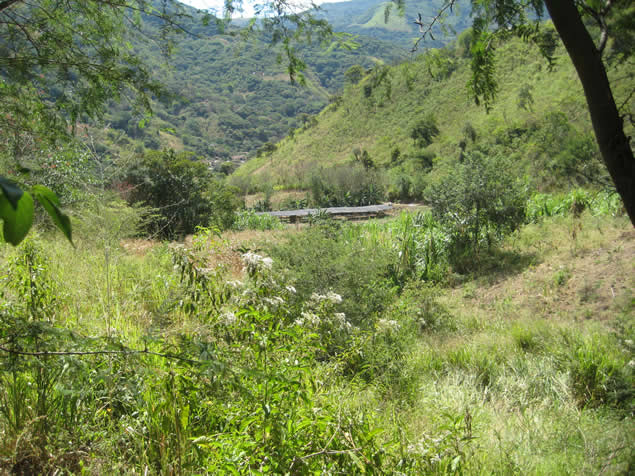
In detail
The project, developed together with the Ecuadorian Populorum Progressio Fund (FEPP) in the provinces of Loja, El Oro and Zamora, focuses on improving technical agroecological education in twelve technical agricultural and livestock farming baccalaureate colleges so they can promote the management of sustainable and integrated agricultural and stock production systems in their communities.
In addition, a considerable improvement in both the quality and quantity of water available in the area is expected to be achieved, as well as a balance in the ecosystems, with particular attention to springs and water replenishment areas.
The actions to be carried out will be as follows::
- Implementation of clean crops and livestock production infrastructures.
- Production of organic fertilisers.
- Protection of springs supplying water.
- Study and design of family and community irrigation systems.
- Construction of surface wells and pressurised irrigation systems: spraying, micro-spraying, drip…
- Implementation of gravity irrigation systems.
- Construction of water reserves and implementation of infrastructures for automated drinkers for stock.
Each irrigation system will have a skilled person for its maintenance and the parts will be available in local markets at affordable prices for the funds collected.
The project also includes advice on the maintenance of irrigation infrastructures and the handling of products from the producers’ plots; that is, the setting up of profitable businesses.


